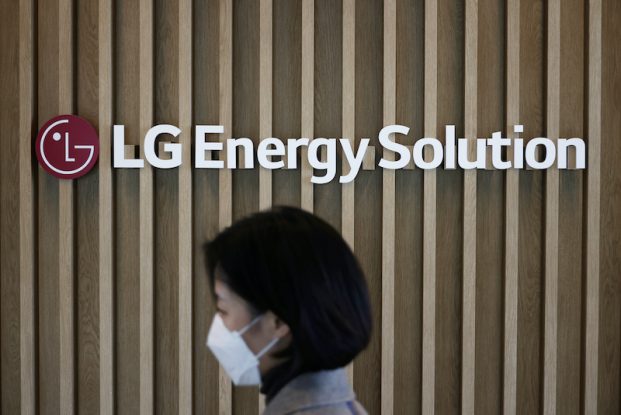South Korean officials will meet their US counterparts this week to express “concerns” over negative impacts from the $430-billion climate bill in regard to subsidies for the production of electric vehicles.
The Inflation Reduction Act, as it’s formally known, signed by President Biden on August 16, restricts which companies can receive US subsidies for the production of electric vehicles (EVs) and where firms can source battery materials.
The law requires that EVs be assembled in North America to qualify for tax credits, ending subsidies for several EV models, and that a percentage of critical minerals used in batteries come from the United States or an American free-trade partner.
Automakers like Hyundai Motor face short-term competitive disadvantage to manufacturers of EVs that receive tax credits in the United States, while industry sources said Korean battery makers must make changes to mineral sourcing routes, which could affect cost adversely.
South Korean officials are expected to tell counterparts from the US Trade Representative’s office and the US Treasury that the new law may violate trade norms such as the US-South Korea free trade agreement and a World Trade Organisation agreement, the industry ministry said.
Korean automakers such as Hyundai will consider adjusting production plans to prioritise the construction of US plants for example, the ministry said, while battery makers will seek to diversify where they source minerals from.
And Korean battery supplier LG Energy Solution and Japan’s Honda Motor Co said on Monday they will set up a new lithium-ion battery plant for electric vehicles in the United States.
The companies plan to invest $4.4 billion, they said in a statement, and are aiming for annual production capacity of approximately 40 GWh with the batteries supplied exclusively to Honda facilities in North America to power Honda and Acura EV models.
The pair are expected to establish a joint venture before building the plant, with the start of construction planned for early 2023 and mass-production by the end of 2025.
ALSO SEE: Hyundai Motor May Begin Work on US EV Plant This Year
Battery Makers Want Implementation Delay
Under new rules to kick in next year, at least 40% of the monetary value of the critical minerals in batteries will need to come from the United States or an American free-trade partner, with that proportion rising to 80% by 2027.
Globally, the treatment of some 58% of lithium, 64% of cobalt and 70% of graphite goes through China, according to ministry data.
The new rules are a major complication for battery makers LG Energy Solution (LGES), SK On and Samsung SDI, battery industry sources said.
South Korea’s LGES supplies Tesla and General Motors, while SK On and Samsung SDI supply Ford Motor and Volkswagen among others. The three battery makers together command more than a quarter of the global EV battery market, according to SNE Research.
“It’s become a huge headache…. Automaker clients said they didn’t expect this new law would take effect this soon,” a South Korean battery industry source said.
A second South Korean battery industry source said the government needed to ask for the United States to delay the battery sourcing rule as it was going to take a long time to verify where all the components and minerals came from, let alone make any changes to sourcing.
“We don’t have many options other than asking the United States to alleviate the battery component and mineral rules and to delay the actual implementation,” the second source said.
The sources declined to be identified as they were not authorised to speak to the media.
LGES and SK On declined to comment on whether they expect to meet the requirements by next year. Samsung SDI was not immediately available for comment.
For automakers, analysts said the changes to EV subsidies would have a limited financial impact because Hyundai and Kia’s US EV sales make up a small percentage of their overall US car sales.
Still it represented a setback, they said.
“Hyundai is at a disadvantage in the short-term compared to automakers whose EVs receive credits, as electrification of the US auto market accelerates,” Meritz Securities analyst Kim Jun-sung said.
A Hyundai Motor spokesperson was not immediately available to comment.
- Reuters with additional editing by Jim Pollard
ALSO SEE:
Korea’s LG Energy Solution Seeks Factory Sites Outside China
LG Energy Solution Said to Plan US Battery JV with Honda
Hyundai In Talks to Build Georgia EV Factory
Hyundai Motor to Start EV Production at US Alabama Plant
























